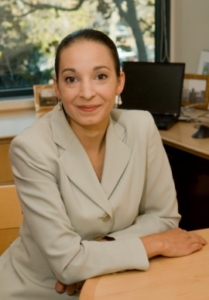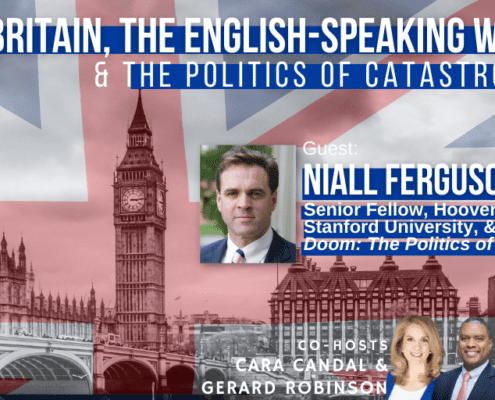Stanford’s Prof. Caroline Hoxby on Charter Schools, K-12 Ed Reform, & Global Competitiveness
This week on “The Learning Curve,” Cara and Gerard are joined by Caroline Hoxby, the Scott and Donya Bommer Professor of Economics at Stanford University and a Senior Fellow of the Hoover Institution. Professor Hoxby shares what inspired her interest in charter schools, school choice, and social mobility, and the major lessons she has learned about K-12 education policymaking in the U.S. throughout her career. She discusses the benefits of randomized lottery-based research in yielding the most reliable charter school effectiveness data. They also delve into the growing disconnect between the nation’s increasing per-pupil expenditures and stagnant student achievement, and the long-term implications of these data regarding social mobility and the nation’s economic vitality.
Stories of the Week: Will COVID-19 usher in a whole new approach to school funding that ties spending to students’ needs or mastery? Defying expectations based on past recessions, enrollment in K-12 private schools has increased during COVID, according to the results of a new survey of 160 independent schools in 15 states.
Guest:
 Caroline Hoxby is the Scott and Donya Bommer Professor of Economics at Stanford University, the director of the Economics of Education Program for the National Bureau of Economic Research, and a senior fellow at the Hoover Institution. She also served as a member of the Board of Directors of the National Board for Education Sciences. Hoxby’s research has received numerous awards, including a Carnegie Fellowship, a John M. Olin Fellowship, a National Tax Association Award, and a major grant from the National Institute of Child Health and Development. She has written extensively on educational choice and related issues. Hoxby is the editor of How the Financial Crisis and Great Recession Affected Higher Education (University of Chicago Press, 2015), The Economic Analysis of School Choice (University of Chicago Press, 2002), and College Choices (University of Chicago Press, 2004). She graduated summa cum laude and Phi Beta Kappa from Harvard University in 1988, where she won a Hoopes Prize. She earned her master’s degree in 1990 from the University of Oxford, which she attended on a Rhodes Scholarship, and her doctorate in 1994 from the Massachusetts Institute of Technology.
Caroline Hoxby is the Scott and Donya Bommer Professor of Economics at Stanford University, the director of the Economics of Education Program for the National Bureau of Economic Research, and a senior fellow at the Hoover Institution. She also served as a member of the Board of Directors of the National Board for Education Sciences. Hoxby’s research has received numerous awards, including a Carnegie Fellowship, a John M. Olin Fellowship, a National Tax Association Award, and a major grant from the National Institute of Child Health and Development. She has written extensively on educational choice and related issues. Hoxby is the editor of How the Financial Crisis and Great Recession Affected Higher Education (University of Chicago Press, 2015), The Economic Analysis of School Choice (University of Chicago Press, 2002), and College Choices (University of Chicago Press, 2004). She graduated summa cum laude and Phi Beta Kappa from Harvard University in 1988, where she won a Hoopes Prize. She earned her master’s degree in 1990 from the University of Oxford, which she attended on a Rhodes Scholarship, and her doctorate in 1994 from the Massachusetts Institute of Technology.
The next episode will air on Wednesday, December 9th, 2020 at 12 pm ET with guest, Daniel Walker Howe, Rhodes Professor of American History Emeritus at Oxford University in England and Professor of History Emeritus at UCLA. He won the 2008 Pulitzer Prize for History for What Hath God Wrought: The Transformation of America, 1815–1848.
Tweet of the Week:
A filmed version of Charles Dickens’ A Christmas Carol, starring Tony winner Jefferson Mays, streams worldwide beginning November 28 to benefit partner theatres nationwide that have been affected by the ongoing pandemic. https://t.co/qj4HStF92C
— Playbill (@playbill) November 28, 2020
News Links:
School Funding: Three New Approaches To Paying For K-12 Education
One sector is flourishing during the pandemic: K-12 private schools
Get Updates on Our Education Research
Related Posts























